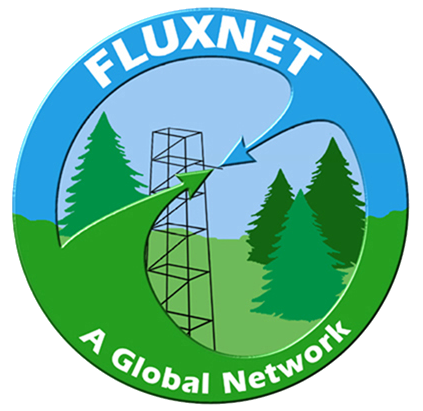The FLUXNET ECN community welcomed four scholars and environmental scientists on July 30, 2021 to discuss career challenges to early career scientists and the resources, solutions and obstacles they faced in their own experience. In this blog, we selected key resources and knowledge shared for early career scientists from each panelist. Resources include advice/tips, links to online exercises, job boards, funding and review opportunities.
Each scholar attributed a unique perspective, but by the end of the career panel had found a common message:
Bring your whole self, nothing less. If it doesn’t feel right, try something else. There is a place for everyone in science and we need all hands on deck to make science accessible, just and communicable for the global challenges ahead. When in doubt, reach out—asking for 20 minutes of someone’s time to discuss your potential job or career move can be awkward but is rewarding. More importantly, early career scientists build networks that strengthen inclusiveness and are leading the positive changes to work-life balance, mentoring and scientific approaches.
For the full webinar, visit AmeriFlux’s YouTube channel here: https://www.youtube.com/watch?v=phuaxFW426k.
Dr. Jennifer Arrigo – Program Manager for the Department of Energy Environmental System Science
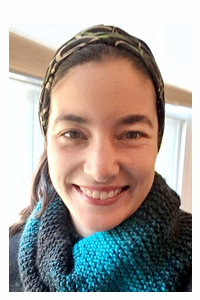 As a program manager at ESS for a little over a year now, she looks back and characterizes her career trajectory as a “career and a pathway through community science”. While she enjoys her job in the federal science space and sees it as a good fit for her, it took her 15 years to get here. Over that time, she cultivated experiences that have helped her find her way in science and particularly accredits community-based networks. Whereas graduate school gave her a research foci, she learned the importance of outreach and broader impacts in her first early career and tenure track position taught her. Next, her position as a CUAHSI fellow and senior scientist taught her the importance of interdisciplinary research, which she greatly values in her career. The experience introduced her to partnerships in the federal government, where she is today.
As a program manager at ESS for a little over a year now, she looks back and characterizes her career trajectory as a “career and a pathway through community science”. While she enjoys her job in the federal science space and sees it as a good fit for her, it took her 15 years to get here. Over that time, she cultivated experiences that have helped her find her way in science and particularly accredits community-based networks. Whereas graduate school gave her a research foci, she learned the importance of outreach and broader impacts in her first early career and tenure track position taught her. Next, her position as a CUAHSI fellow and senior scientist taught her the importance of interdisciplinary research, which she greatly values in her career. The experience introduced her to partnerships in the federal government, where she is today.
What helped her most was exploring positions. At first, she also imagined that the academic track was the way to go but later discovered opportunities in professional societies, nonprofit research organizations, as well as the federal US government. She spent the first years in her career exploring these options by joining workshops, webinars, committees, and organizing boards.
Dr. Arrigo’s career advice: take part in these events and hone your science and interests. She found her interest was in the intersection of science and policy. “The big thinking”, as she called it. She built a knowledge-based network where each person that she met had unique experiences and abilities that she could learn from and lean on (e.g., letters of reference, science and career discussions). She suggests asking your network questions that are broad and relate to science as a community endeavor. Support networks are critical infrastructure needed to advance science. They are exceptional for early career folks, as they are “communities of the willing—they believe in the power of the organization and in community science”.
Tips on surviving the obstacles of today’s world: “Look at your strengths, look at your interests, and bring them to the table. If it doesn’t feel quite right, there’s a place for you. Science is multifaceted and it takes all kinds. We’re all learning, so raise issues, ask questions, and think critically,” Remember that over the past year, we have learned more about how we do things and the impact that our actions have on inclusivity and diversity of science. We all want to learn and be better, and your unique perspective will help us get there.
Specific DOE Resources of interest include
- ESS yearly funding opportunity announcements and review opportunities, typically in the fall (Sept-Nov): https://ess.science.energy.gov;
- Office of Science Graduate Student Research (SCGSR) Program https://science.osti.gov/wdts/scgsr; work at a DOE national lab!
- Early Career Research Program: https://science.osti.gov/early-career; rotating opportunities for tenure-track scientists or full-time employees at DOE labs within 10 years of earning their degree.
- Explore the DOE national laboratories: https://science.osti.gov/Laboratories
Additional ESS Community Resources
- Environmental Justice: https://www.energy.gov/lm/environmental-justice
- Diversity, Inclusion, Research Integrity: https://www.energy.gov/science/diversity-equity-inclusion
- Open data and open science philosophy is adopted by AmeriFlux, IDEAS-watersheds, ESS-DIVE, ExaSheds, WONDRS, LeafWeb, FRED
Dr. Danielle Ignace – Assistant Professor, University of British Columbia in Vancouver Forest and Conservation Science
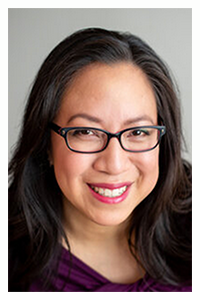 Dr. Danielle Ignace is beginning her tenure-track appointment with University of British Columbia in Vancouver Forest and Conservation Science where she will work with Indigenous communities fighting climate change. While she may “appear as a typical tenure career track scientist”, she has experienced many changes in her research and personal growth while trying different job positions. After her PhD at University of Arizona, she held a postdoc for what she calls “a very long time”—6 years to be exact. She was then in a difficult job market while pursuing funding and applying to everything should could, preferring R1 (i.e., top-tier US research universities). However, she eventually took the opportunity to teach at small liberal arts colleges including Smith College and as an Adjunct at Union College. Here, she describes the demands of research as well as mentoring and advising within liberal arts colleges as a unique experience that has a changing landscape. Anyone with questions about these experiences is encouraged to reach out to her with questions.
Dr. Danielle Ignace is beginning her tenure-track appointment with University of British Columbia in Vancouver Forest and Conservation Science where she will work with Indigenous communities fighting climate change. While she may “appear as a typical tenure career track scientist”, she has experienced many changes in her research and personal growth while trying different job positions. After her PhD at University of Arizona, she held a postdoc for what she calls “a very long time”—6 years to be exact. She was then in a difficult job market while pursuing funding and applying to everything should could, preferring R1 (i.e., top-tier US research universities). However, she eventually took the opportunity to teach at small liberal arts colleges including Smith College and as an Adjunct at Union College. Here, she describes the demands of research as well as mentoring and advising within liberal arts colleges as a unique experience that has a changing landscape. Anyone with questions about these experiences is encouraged to reach out to her with questions.
Deciding to change things up, she accepted a Research Associate position Harvard Forest. Here she finally found the space to include not only her research but her identity as a Native Woman of the Coeur d’Alene Tribe of Northern Idaho. Until this moment, she struggled to stay within Academia and considered a standard Western science path was not a place that valued her whole self.
Dr. Ignace’s career advice:
- Don’t decide for them, apply! Seek out and apply to a variety of positions that you qualify for.
- You never know what will work out. Throw your hat in the ring and let the search committee decide.
- Reach out: contact the chair of the search committee, members of the department, colleagues on social media. Don’t be shy! Many of the best conversations and advice come from these contacts.
- Make a website so you can be easily found online and can provide your information, interests and skills.
- Cross check your application with others. Their feedback is important for a polished application.
- Do the homework. Ask your colleagues, friends, lab members and students at the institutions and positions where you are applying.
- If it’s not a right fit, leave!
Tips on surviving the obstacles of today’s world:
Bring your whole self, including everything you represent and stand for. If this is not valued at the workplace, reconsider if it’s a good fit.
Dr. Beth Caissie – Physical Scientist at USGS-Geology, Minerals, Energy, and Geophysics Science Center
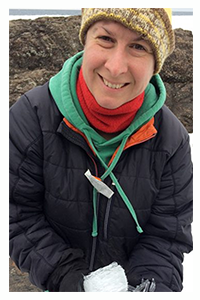 For Dr. Caissie, her early-career experience taught her to stick to her values and rely on her mentors when facing challenges, which eventually lead her to the job she loves today. The pride that she feels stems from the success of her students and the relief brought by a fresh opportunity at USGS—an appointment she just began during the pandemic. In her transition from academia to USGS, she obtained an Adjunct Associate Professor appointment at University of California Santa Cruz where she can continue her NSF work. By doing so, she remains an active mentor and supervisor for students while building community within the department.
For Dr. Caissie, her early-career experience taught her to stick to her values and rely on her mentors when facing challenges, which eventually lead her to the job she loves today. The pride that she feels stems from the success of her students and the relief brought by a fresh opportunity at USGS—an appointment she just began during the pandemic. In her transition from academia to USGS, she obtained an Adjunct Associate Professor appointment at University of California Santa Cruz where she can continue her NSF work. By doing so, she remains an active mentor and supervisor for students while building community within the department.
Before she got here, however, she took what she thought was the better path—academia. As a PhD student, the path was “you would get the postdoc and then a professorship on the tenure track”. Attracted by the stability for her family and the familiarity of academia, she took her first steps at a tenure track position at Iowa State University. Years later, she was denied tenure and faced the same critical career decision but with the weight of disappointment and uncertainty. The shock and taboo nature of it all left her without a clear direction on where to turn next. “When you’re denied tenure, it’s a huge taboo subject. I was watching my whole cohort of faculty that came in with me and they were announcing on Twitter and Facebook that they had accepted tenure, and I just sat there in silence. I couldn’t post, ‘Hey everyone, I was denied tenure!’ because that’s not a thing.”
“It’s not the end of the world”, she says. One thing that helped her most transition from academia and out of this rut were her mentors and The National Center for Faculty Development and Diversity (NCFDD). The membership has trainings, writing challenges and mentors, all of which are free and provided by many of our academic institutions. Here, she gained the knowledge and a supportive network pre-tenure that carried her through into USGS. After reaching out to her mentors, she found people “coming out of the wood-work” to share their experience with tenure. These many conversations encouraged her as she applied to every job she could find. The best advice she received, “If you want to do something you’ve never done before, you should someone who has just done that thing and ask them ‘Can I have a 20-minute conversation with you’? It’s so non-threatening; they’re not going to say no.”
Dr. Caissie’s career advice:
- Try the 20-minute interview with someone who you relate to and ask how they overcame their challenge, whether it’s career or science related
- Check if your institution is a member of the National Center for Faculty Development and Diversity. They have resources for every career stage in academia from grad student to administrator.
If you’re a US Citizen, apply for a Federal Job using these tips:
- Take advantage of the tools on www.USAJobs.gov!
- Save the searches and sign up for job alerts.
- Use the resume tool. It’s ugly, but it’s what they want. Give them all the information you can think of.
- Be honest, but don’t be modest or shy when responding to questions of skill sets. You’ll choose on scale of familiarity what you can perform. Don’t lie, but answer as high as you can while staying honest. This will increase the likelihood that you make it past computer pre-screenings and join the later applicant pool.
- Use the specific key words listed in the job ad and relate those to the actions/achievements you have on your CV. The computer will mine for these.
- Apply as early as you can! The posting can disappear within a week and sometimes, after 100 applications, it is removed.
Tips on surviving the obstacles of today’s world:
“Maybe there is no ‘typical’ career path for a PhD.” Almost everyone on this panel talked about their circuitous route in science. We need to get away from the idea that a tenured faculty position is the best end goal. There are lots of different kinds of careers and opportunities out there for early career scientists.
Dr. Cari Ficken – Research Assistant Professor, the University of Buffalo
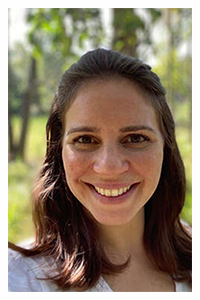 In her research, Dr. Ficken looks at the scale interactions between plant ecology and the feedbacks to larger-scale processes, such as climate. She’s in a career transition now as she’s building her lab and establishing herself at the University of Buffalo as a Research Assistant Professor. Before taking the plunge, she had her mind and heart on the intersections of what she values and what various career pathways can offer. While her professional trajectory in academia is “pretty straightforward” (e.g., with postdocs, tech jobs, and research appointments), she mulled over multiple career paths and the culture, lifestyle and the benefits they offer.
In her research, Dr. Ficken looks at the scale interactions between plant ecology and the feedbacks to larger-scale processes, such as climate. She’s in a career transition now as she’s building her lab and establishing herself at the University of Buffalo as a Research Assistant Professor. Before taking the plunge, she had her mind and heart on the intersections of what she values and what various career pathways can offer. While her professional trajectory in academia is “pretty straightforward” (e.g., with postdocs, tech jobs, and research appointments), she mulled over multiple career paths and the culture, lifestyle and the benefits they offer.
So how do we begin a job transition? First, soul searching. Your personal values matter when exploring career options. These include, but are not limited to: advancement, competition, flexibility, fun, knowledge, spiritual and moral fulfillment, security and variety. Once defining values clearly, you may realize that they could be better supported elsewhere outside of academia.
Second, we think we have “one-identity”, such as an academic, but we can change that mindset. For example, in industry, it’s very common to change jobs and identities. Learn to fine-tune your job selections based on the skills and values you enjoy in the current position; there’s even a salary bump when changing positions in industry.
Third, cultivate these new identities by transposing “academic” skills into transferable sills. Instead of “developed a research program” try “project management, problem solving”. For data analysis, try “synthesizing complex data from different sources, wrangled data, or specific statistical skills”. Many companies and startups out there want the creative ways to work in the environment that use both data and knowledge of the environment.
Dr. Ficken’s career tips:
Explore her resources and tools for how she made her own transition:
- Job boards for roles with climate startups: https://climatebase.org/
- Background info on different startups: https://www.crunchbase.com/
- Get ideas for diverse careers: University Career Development Centers
- Job alerts, see how people are selling themselves…:LinkedIn
- Transitioning out of academia:
- https://veratilephd.com/
- https://fromphdtolife.com/
- https://beyondprof.com/
- https://www.esa.org/earlycareer/resources-2/so-youre-about-to/
- Blog exercise on reflection and identifying our values by The Jackson Laboratory, Melanie V. Sinche, NCC (https://www.jax.org/news-and-insights/jax-blog/2016/november/personal-values-matter-in-a-job#).
Tips on surviving the obstacles of today’s world:
“There are many interesting, fulfilling, engaging career opportunities out there. You have skills and knowledge that are applicable for many different jobs and careers.” You’ll have to learn how to cultivate and adjust to a new work culture, but you can do it! Don’t under sell yourself.
